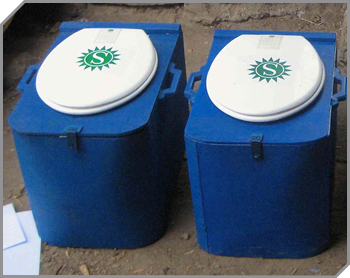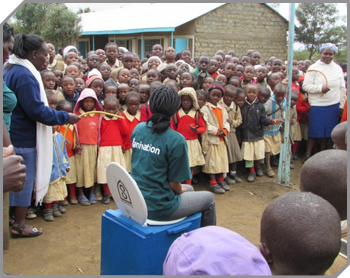Turning human waste into affordable fuel in Kenya

Have you ever stopped to think about how many times you use a toilet each day? We often take it for granted that when we “need to go,” a toilet will be nearby. However, throughout the world, an estimated 2.5 billion people do not have access to toilets or safe latrines. Without toilets or latrines, people have no other option than to relieve themselves on open land or in bodies of water. This can lead to contamination of a community’s drinking water source, making the water unsafe to drink.
CDC is committed to increasing access to basic sanitation services, especially in under-developed countries where resources are limited. When a start-up group of recent university graduates approached CDC with an innovative idea—to provide toilets in households in need and use the human waste to make fuel briquettes—a new, collaborative partnership began.

Established in 2011, Sanivation installs toilet facilities in Kenyan households for a small monthly service fee. The Sanivation representatives collect the waste, and treat it with solar thermal energy to create low-cost briquettes for cooking and heating homes. The briquettes burn longer than standard coal and may let off less particulates, leading to less pollution and better public health.
CDC first teamed up with Sanivation in 2013. With the support of a CDC Innovation Fund Award, CDC staff helped Sanivation examine how well and under what conditions (such as temperature and time) solar thermal treatment kills the harmful germs in human waste. After this first successful collaboration, CDC was able to support Sanivation with a supplemental award, which is being used to develop health and safety guidelines for workers employed in global waste collection, treatment, and reuse.
A future project CDC project with Sanivation will compare the effectiveness of composting toilets to solar sanitation in killing harmful germs in human waste. This is especially important when considering germs that are relatively heat-resistant, like the parasites Cryptosporidium and Ascaris Lumbricoides. Innovative partnerships such as this one are critical for CDC’s continuing work improving sanitation and hygiene services access across the globe.